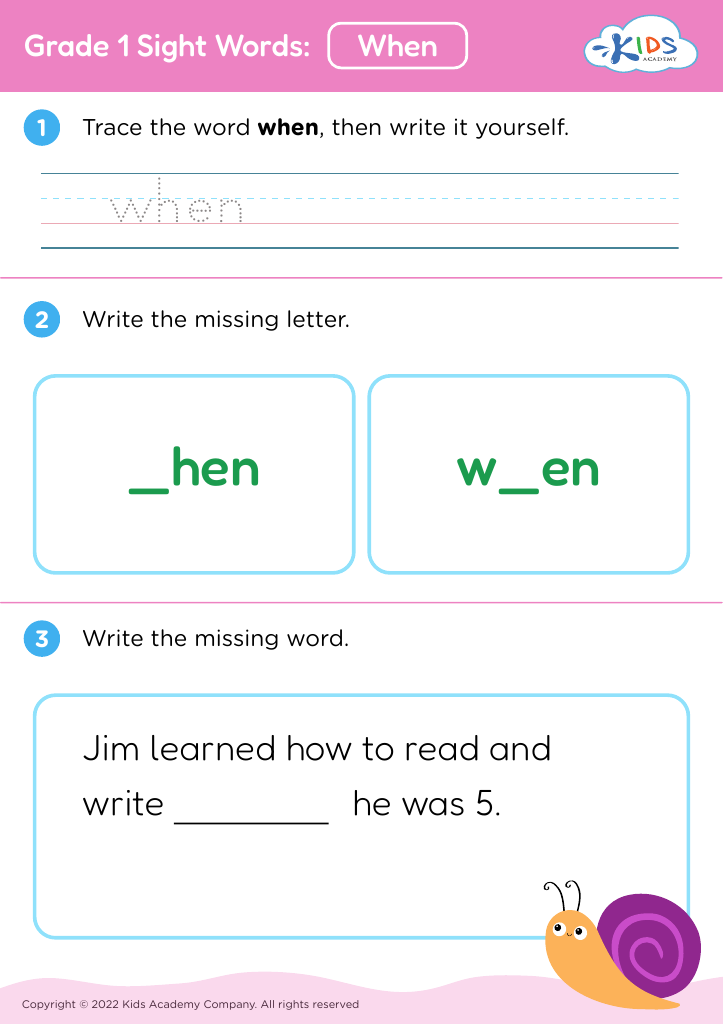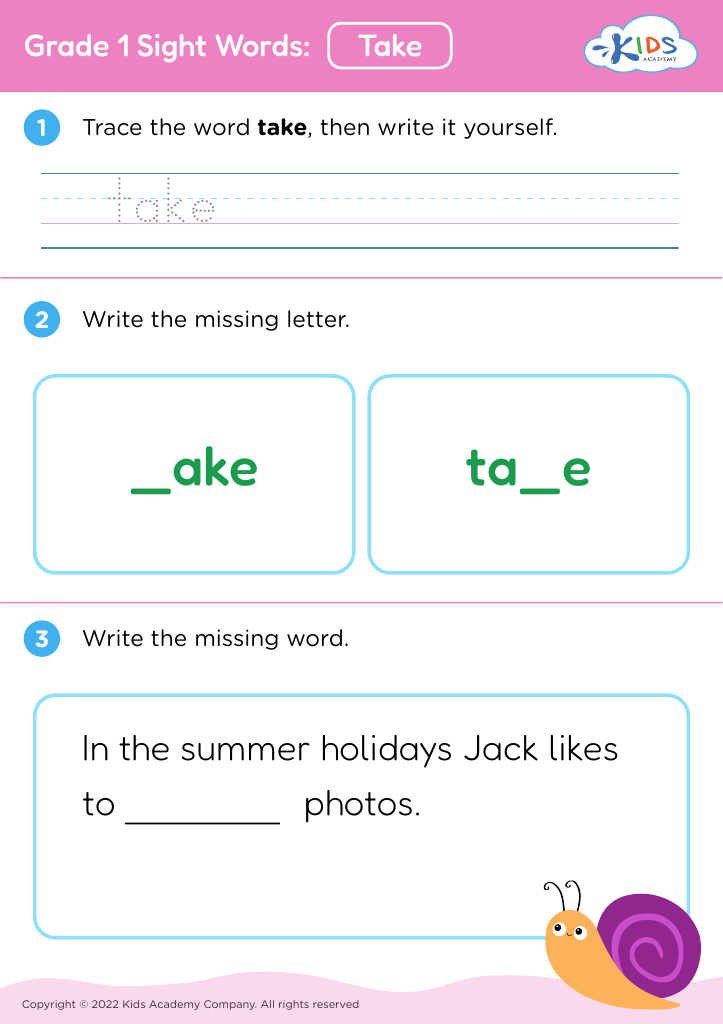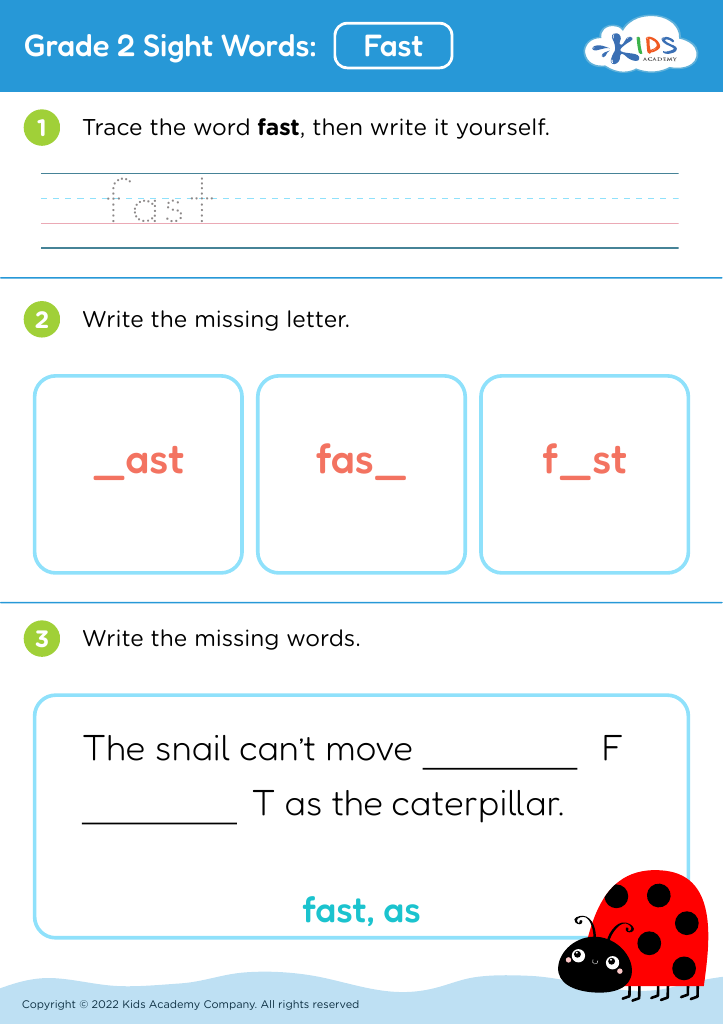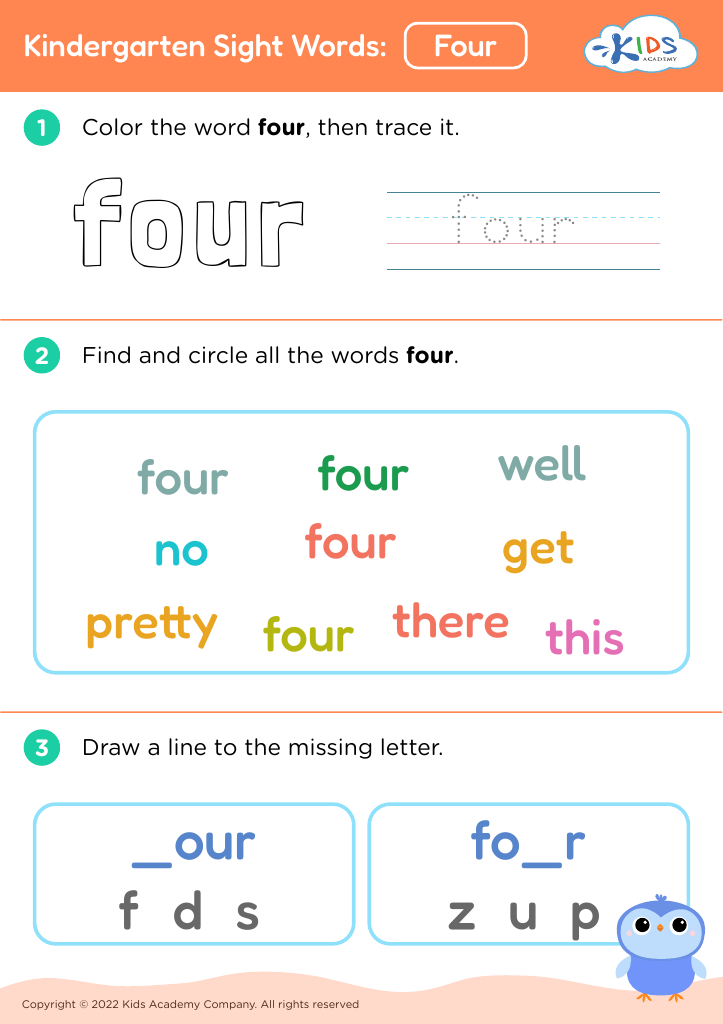Subtraction practice Reading Worksheets for Ages 3-7
5 filtered results
-
From - To
Our "Subtraction Practice Reading Worksheets for Ages 3-7" are designed to make learning subtraction engaging and fun for young children. These printable worksheets combine reading and math skills to help kids grasp the concept of subtraction in an interactive manner. Each worksheet features colorful illustrations and age-appropriate exercises that cater to early learners. By incorporating stories and visual aids, children can better understand subtraction processes, enhancing their problem-solving skills and boosting their confidence in math. Ideal for home or classroom use, these worksheets are perfect for preparing foundational math skills in a supportive and enjoyable way. Try them today!


The Five Little Monkeys Nursery Rhyme Worksheet
Parents and teachers should actively care about subtraction practice for children aged 3-7 because it is foundational to their mathematical development and overall cognitive growth. Subtraction is one of the basic arithmetic operations that children must master early on, as it forms the core of more complex mathematical concepts they will encounter later. For young children, this practice enhances their problem-solving skills, helping them understand the concept of 'taking away' and the relationships between numbers.
Moreover, incorporating reading into subtraction practice improves literacy and numeracy simultaneously. Story problems or illustrative books that incorporate subtraction make learning engaging and relatable, which can significantly boost a child's interest and motivation. This dual focus on number skills and reading comprehension fosters a well-rounded intellectual development.
Early mastery of these skills underpinned by consistent practice sets a strong foundation for academic success. It builds confidence, promotes logical thinking, and prepares young children for the structured learning environment of higher grades. For these reasons, parents and teachers should prioritize strategic, playful, and consistent subtraction practice intertwined with reading to facilitate comprehensive, enjoyable learning experiences.

 Assign to My Students
Assign to My Students
























